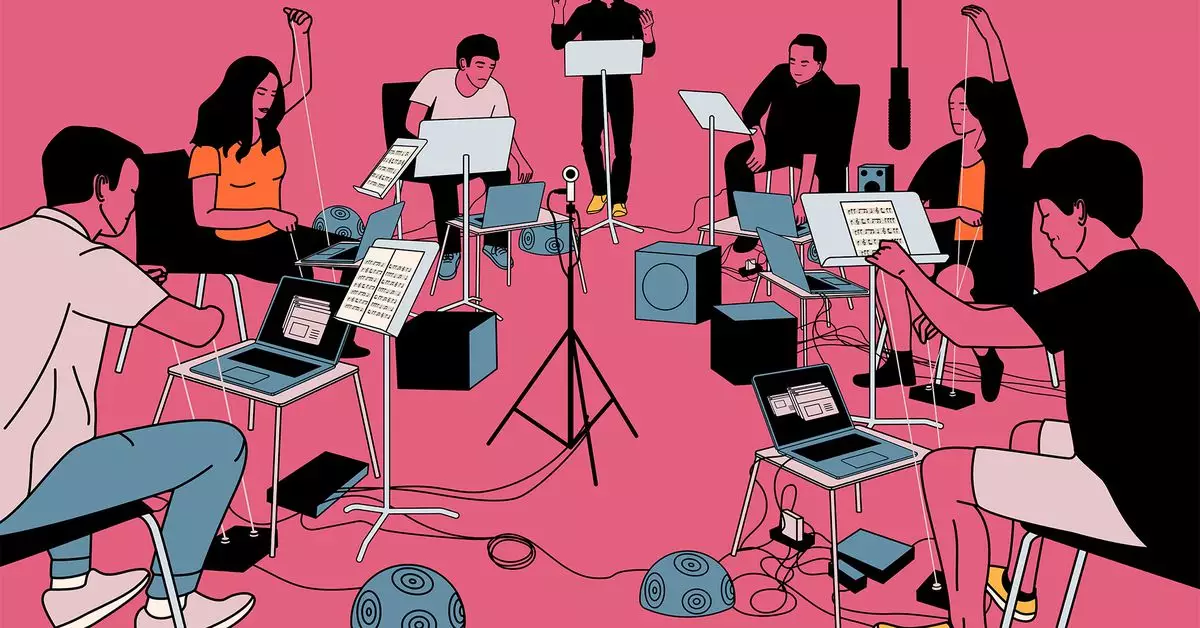In today’s digital age, the landscape of music production is rapidly transforming. Traditional musicians often engage with technology predominantly as a means to streamline their creative processes. However, Ge Wang, a prominent figure in the intersection of music and technology, advocates for a refreshingly unconventional approach: utilizing technology not merely as a tool but as an immersive medium itself. At Stanford University, Wang explores the depths of “computer music” as an associate professor at the Center for Computer Research in Music and Acoustics. His involvement in pioneering projects, such as the Laptop Orchestra and the development of the innovative programming language Chuck, places him at the forefront of this fascinating evolution.
In his recent dialogue on The Vergecast, Wang delves into the core of what it means to create music in an increasingly automated world. He emphasizes the importance of teaching his students to embrace a playful relationship with technology. Instead of viewing tech as a challenge or a tool to master, Wang encourages a narrative where students can explore and experiment freely. This perspective fosters a culture of creativity that values process over product—a sentiment that resonates strongly in an era dominated by artificial intelligence and algorithmic efficiencies.
As technology continues to accelerate the pace of creative work, the central question arises: does efficiency enhance creativity, or does it stifle originality? Wang’s insights suggest a need for a foundational rethinking of our objectives in the arts. Perhaps the mission of musicians and artists should not be solely to produce with ease but to engage in a more profound exploration of their craft. The challenge, then, lies in balancing the utilization of these powerful tools while not losing sight of the essence of what it means to create.
Amidst the myriad of advancements in music technology, Wang articulates a pressing concern: the potential homogenization of artistic expression. When creation becomes overly simplified, we risk erasing the nuanced, often laborious journey that gives art its value. The conversation touches on a critical existential inquiry: in a world swirling with innovative tools designed to make tasks easier and quicker, what remains of the authentic human experience?
Wang’s perspectives push us to reevaluate the functions of creativity and art in our lives. Although technological tools can enhance efficiency, they should not diminish the intrinsic joys and struggles inherent in the artistic process. Turning each note into sound, each idea into a melody requires a human touch—an emotional nuance that machines are yet unable to replicate fully. It is this essence of struggle, exploration, and imperfections that makes the final product not just a piece of music, but a reflection of the human experience.
As we stand on the brink of a new era in music creation, the dialogue surrounding technology and creativity is more crucial than ever. Ge Wang’s innovative contributions remind us that the future of music technology holds enormous potential, primarily if we approach it with curiosity and a willingness to engage critically. By fostering environments where creativity thrives, not merely through ease but through experience and exploration, we pave the way for a richer and more textured soundscape that honors tradition while embracing innovation. Indeed, the path forward beckons us to rediscover the joy of hard work and the transformative power of music.


Leave a Reply